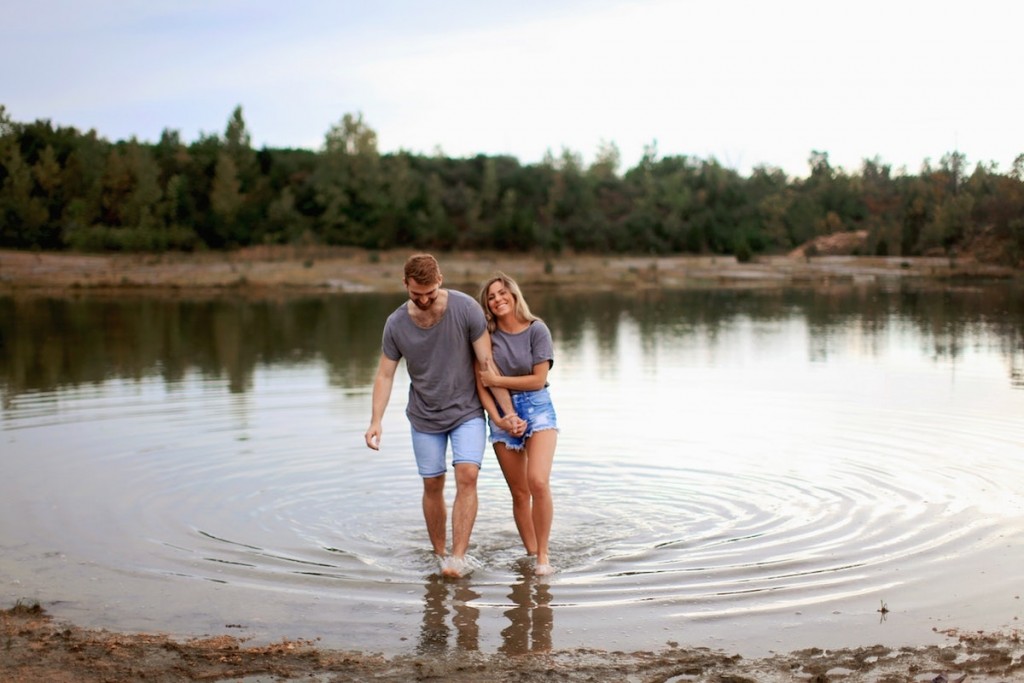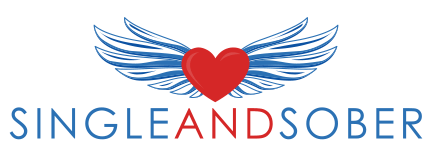
In those delicate first weeks and months of recovery, most of us are in no position to be playing the field, so to speak. I wasn’t.
My life was in shambles. My ex-husband had custody of our two kids, I was in sober living and intensive outpatient treatment, and it was the best I could do to make my bed and finish my chore some days, never mind trying to make it through an anxiety-riddled first date.
But as the months stacked up and my body and soul healed, my thoughts began to change. I became interested in dating. Maybe, just maybe, I could even handle a relationship. A partner would be nice… wouldn’t it?
The Sober Dating Conundrum
My life was pretty full by the time I hit my one-year sobriety birthday. I worked full-time, had my children on the weekends (seven years later, they now live with me full-time), was active in a 12-step fellowship and helped other women find recovery. As I scrolled through the dating sites, the thought of trying to make polite conversation over dinner with a man who had no idea what the recovery journey was like wasn’t appealing to me. I had neither the time or the inclination.
“So don’t date normies,” my girlfriend said over dinner one evening. “Stick to people in recovery.”
(“Normie” is the word we use in recovery circles to describe those who do not have a substance use disorder; some parts of the country call them “civilians” or “earthlings.”)
Really? That seemed kind of limiting… like just sticking with blonds or college graduates or guys with tattoos. Did I really want to knock a whole segment of the population out of the dating pool, just because they hadn’t struggled with addiction?
“That’s what I do,” she replied between bites of salad niçoise. “I don’t date normies. Been there, done that. I don’t understand them, and they don’t understand me. We have nothing in common.”
Was her take on things a little harsh? Or did it make good sense? Surely there are successful unions between the sober and no-need-to-get-sober?
In Search of Happy ‘Mixed’ Couples
I set out to uncover happy tales of love between normie and recovered. They told me about the challenges and rewards of dating normies.
Meet Nick
Nick Mandrell has been in recovery for 8.5 years, and he’s been with his partner, Mary, for 8 of those years. Mary is a normie.
“Sometimes she feels like she is on the back burner while I do recovery-related things,” Nick says. “My recovery network is huge, and I help a lot of men find recovery, so I need to take extra care that my wife isn’t feeling neglected.
“Another challenge is wishing that, when she is going through problems, that she would take the same principles people in recovery use to be rid of that stuff. I need to make sure I’m not overstepping my boundaries and just love her. That can be hard to recognize sometimes.
“The reward is that I don’t have to worry about her not staying spiritually fit or relapsing. If I were in a relationship with a recovery person, I would always be concerned about that.”
Meet Valerie
Valerie Bernard has been in recovery for 29 years and with her normie partner, Frank, for a year.
“Obviously, he doesn’t have a sponsor and he hasn’t worked a 12-step program,” Valerie says, “because he has no need to. He goes to meetings with me to support me, but he doesn’t think addiction is a disease. That can be frustrating.
“But relapse is not an issue, which is a MAJOR plus. My last partner relapsed off and on for years. I don’t have to worry about that with Frank. I have never seen him drunk or even buzzed. The challenges are more on my end, because I don’t have much experience with normies, and I don’t always understand his thinking.”
Meet Mike
Mike Reed has been sober for 8 years, and while he’s happily engaged to a normie now, he had to call it quits with another normie partner earlier in his recovery.
“She still drank socially and when we went out on dates, my temptation to drink bothered me, so I decided to end it,” Mike says. “My current fiance made the decision pretty early on in our relationship to stop drinking in support my recovery, which has been amazing.”
While the matter resolved well for Mike, he did notice that it presented challenges for others.
“Some of my friends in recovery were having a hard time meeting people who understood the sober lifestyle,” he says. He founded Single and Sober, a dating website for those in recovery. “I founded the website to help sober people connect and hopefully develop lasting, meaningful and healthy relationships that are free from drugs and alcohol.”
Meet Carole
Carole Tapia has been in recovery for 16 years and married to her normie husband for 35 years.
“I used to wish my husband was in recovery with me, so we could share that experience together,” Carole says. “But that’s no longer the case.
“And even though my husband doesn’t hold many of the same beliefs I have regarding a Higher Power, he respects mine. As long as I continue my spiritual path, our communication and respect for each other grows. We have never been happier.”
Meet Danielle
Danielle Anderson has been in recovery for 5 years and married to her normie husband for a year.
“The challenge is that he doesn’t really understand that addiction is not a conscious choice for people like us,” she says. “He doesn’t get why, at the first sign of trouble, we didn’t just put it down and move on with our lives. So we’ll never have that connection that I have with other people who DO get it, because they’ve been there.
“He also drinks occasionally with his work friends. I had to realize that that was OK. I’m the one with the problem, not him.
“The rewards far outweigh these challenges, though! He is amazing. And he understands my need to help others who are struggling with addiction. In fact, he says that’s one of the things he loves most about me — my compassion.”
Challenges Abound… But So Do Rewards
So here’s what I learned.
- Normie partners may feel neglected as their recovering halves go about the business of maintaining that recovery (meetings, working with others, commitments, etc.). You, on the other hand, must put recovery first — for without recovery, you can kiss every good thing in your life goodbye, anyway.
- They just don’t “get it.” Having never struggled with a substance use disorder themselves, you will not share that bond with them. Are you OK with that?
- Just because you can’t drink, doesn’t mean they can’t drink, as long as it’s within healthy boundaries.
Of course, it ends up being a personal decision, but it’s obvious that happy endings exist when it comes to dating normies in recovery. I won’t rule out those tall, dark and handsome normies just yet.

Megan Krause is a freelance writer and recovered addict raising two teens and living a beautiful, sober life in Phoenix, Arizona. Follow her on Twitter and connect with her on LinkedIn.
